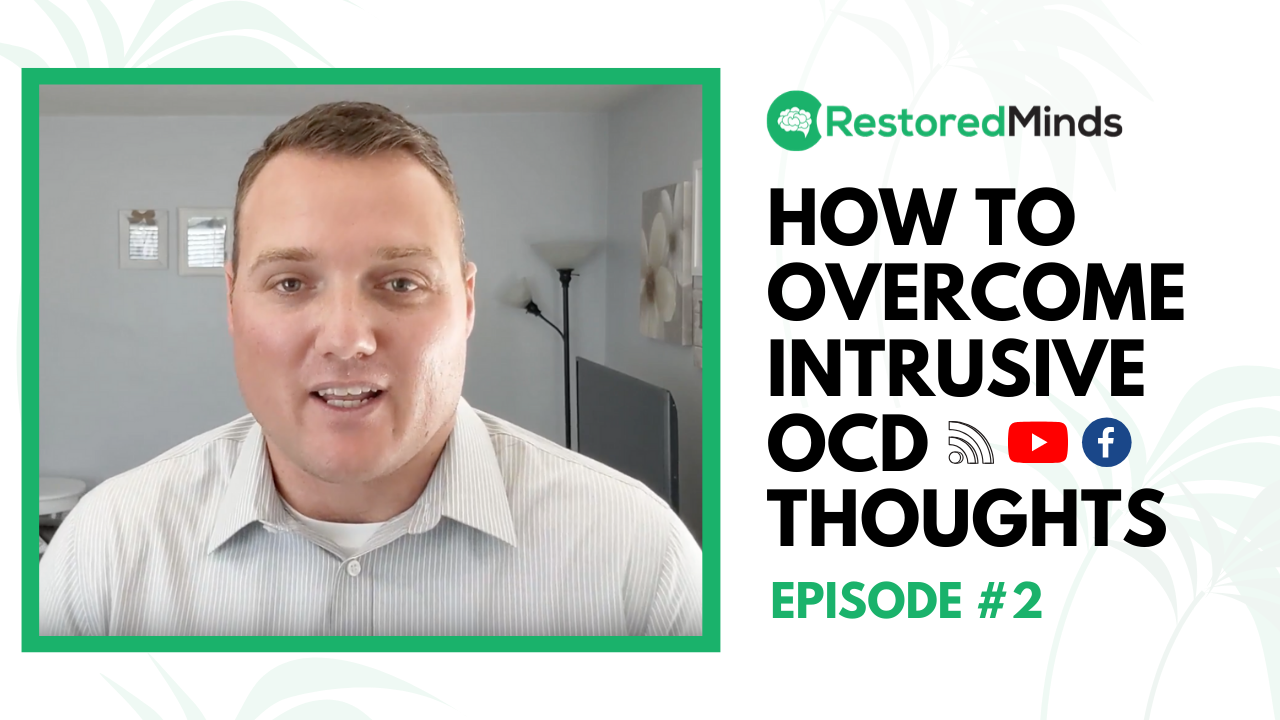How To Overcome Intrusive Thoughts OCD
Oct 02, 2019
Title: How to Overcome Intrusive OCD Thoughts: A Comprehensive Guide
Introduction: Intrusive thoughts are a common concern for many people dealing with OCD (Obsessive-Compulsive Disorder). These are thoughts that enter the mind unbidden and can be deeply distressing, often leading to anxiety, fear, and compulsive behaviors. In this comprehensive guide, we will discuss how to overcome intrusive OCD thoughts, inspired by insights from Matt Cotti, a licensed clinical social worker. Read on to learn effective strategies and techniques for managing these intrusive thoughts and regaining control over your life.
What Are Intrusive Thoughts? Intrusive thoughts are unwanted thoughts that often do not reflect who you are or your beliefs. These thoughts usually fall into three main categories:
-
Violent or Harmful Thoughts:
-
Thoughts of hurting oneself or others.
-
-
Sexual Intrusive Thoughts:
-
Thoughts or doubts concerning sexuality or sexual orientation.
-
Relationship doubts.
-
-
Religious or Existential Thoughts:
-
Doubts about religion, God, or existential inquiries like the meaning of life.
-
Understanding the Mechanism of Intrusive Thoughts: Intrusive thoughts persist because we engage with them. When we treat these thoughts as real threats, we reinforce their significance in our minds. This is similar to the analogy of a fly fisherman, where the brain is the fisherman crafting bait that's tailor-made to your specific fears. If you bite the bait, the fisherman keeps using it, thereby reinforcing the cycle.
The Fly Fisherman Analogy: The fly fisherman analogy is a powerful parallel to understand how OCD and anxiety work. Just like a fisherman uses bait to lure fish, our mind crafts intrusive thoughts based on our specific fears. The more we react to these thoughts, the more our mind will produce them. Here’s the essential takeaway: do not take the bait.
Steps to Overcome Intrusive Thoughts:
-
Identify the Intrusive Thoughts: Recognize when a thought is intrusive and label it as such.
-
Do Not Engage: Avoid reacting to these thoughts through mental compulsions like thought suppression, analyzing, or ruminating. Understand that reacting to these thoughts reinforces them.
-
Acceptance: Allow the thoughts to be present without trying to control or eliminate them. Acceptance teaches your brain that these thoughts are not a real threat.
-
Patience: Trust the process. Over time, if you consistently refrain from reacting to these thoughts, they will lose their power and frequency.
Further Resources and Support: If you found this guide helpful, make sure to check out our other resources across our social platforms. Subscribe and like our channels for more insights and tips. Matt Cotti has also made available some free resources and downloads that can help you further on your journey to mental wellness.
Conclusion: By understanding the nature of intrusive thoughts and learning not to react to them, you can regain control and lead a more peaceful life. Remember, overcoming intrusive OCD thoughts is a process, and patience is key.


